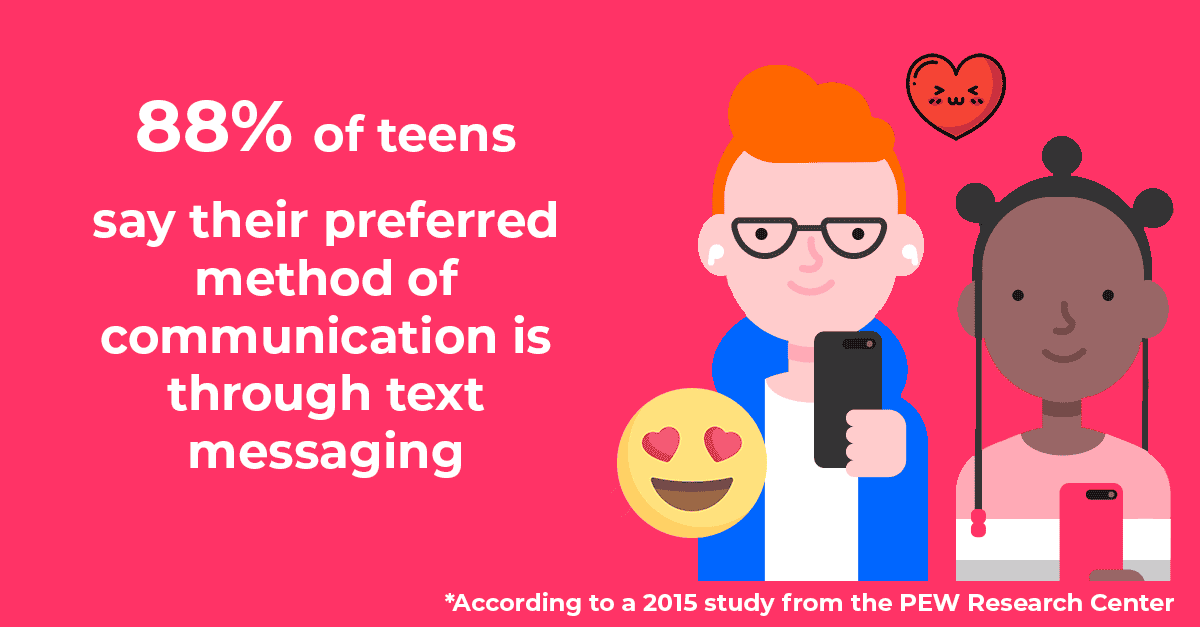Your Teens’ Experience
According to teens, the best and easiest way to meet and engage with love interests is through their social media accounts. We look into the positives teens say they have when in healthy romantic and dating relationships.
According to teens, the best and easiest way to meet and engage with love interests is through their social media accounts. We look into the positives teens say they have when in healthy romantic and dating relationships.

With social media adding another layer of communication, rather than being verbal, they can send endless amounts of emoji’s, GIPHs, images and videos.

As a number of teens have smartphones and are active on social media, they are able to talk with their a potential boyfriend/girlfriend at any point. They are not restricted to talking to them during school or college hours, instead, they can just send a message through popular social networks or private messaging platforms.
It also means that they can ‘talk to’ and interact with other teens that may not be in the same school/college or social circle as them.
![]()
Family Lives – Healthy relationship checklist to support your teen
Online relationships can help teens get beyond the shyness or uncomfortable feeling that can occur when they first meet a love interest, by allowing them to get to know one another before they meet in person (if they do).
Teens who may be labelled ‘different’ by their peers such as being gay, lesbian or having a disability; and so having online relationships with other like-minded people such as themselves, can help them feel they’re not alone in the world.
Reasearch has also shown teens are less likely to feel isolated when interacting with their peers online, and this can in fact, extend to those who have been overlooked by their peers. They develop a higher self-steem when approaching adolescence.
Certain apps that require teens to create content can help them build certain interpersonal and social skills. These relationships can also play a role in supporting their development of positive relationships in other areas such as school or work and can continue way into their adulthood.
As mentioned above, teens who face judgement at school based on their sexual preference, race, personality, for example, are more likely to feel isolated. So, when it comes to traditional face-to-face dating, this may be harder for them to meet someone who understands them. This may make them more likely look for not only romantic bonds online but friendships too.
How Teens Turned Instagram Into a Dating App – Article from The Atlantic

Being aware of who they are talking to and what apps they are using can help you encourage them to think about the types of privacy settings they can set and give you insight on potential issues they may be exposed to. Agreeing safe boundaries around who and what they share and puting in place simple safety rules around how they should and shouldn’t approach or to talk to others online is key.
Staying open with your teen about a variety of topics that they may face online (no matter how awkward) and making sure to talk about what a healthy and unhealthy relationship looks like can equip them with necessary coping strategies to protect them from online risks.
See more articles and resources to keep children safe online